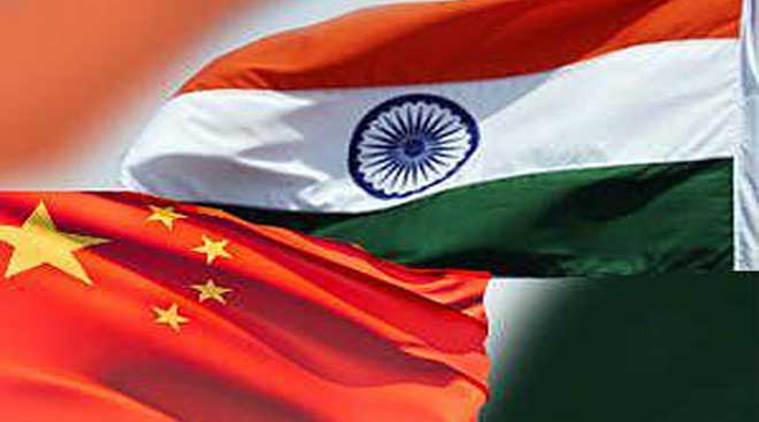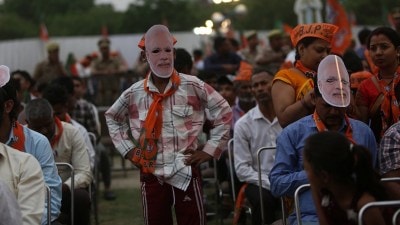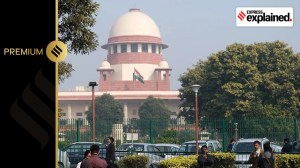- India
- International
Trust must be built between Beijing and Delhi
Indeed, you can’t choose your neighbours.China has a stake in India's success, and welcomes India's rise as a leading power. This also means that India should shoulder greater responsibility in international affairs and properly handle disputes.
 China’s construction of the road in Doklam is viewed by New Delhi as a “major security threat”.
China’s construction of the road in Doklam is viewed by New Delhi as a “major security threat”.
The Sino-Indian relationship has been trapped in a stand-off at Doklam, the Sikkim section of the China-India boundary, when Indian troops trespassed into Chinese territory and blocked Chinese road works in mid-June. Beijing has been insisting that New Delhi back down.
Unnecessary Provocation
So far, there is little sign of India softening its stance over the row at Doklam. Instead, nationalistic rhetoric seems to be rising against China. India refuses to blink and says its India’s China policy must involve candid diplomacy backed by force. China’s construction of the road in Doklam is viewed by New Delhi as a “major security threat”.
In fact, the Sikkim section is the only delineated section of the China-India boundary – totally unlike the undefined eastern, central and western sections of the border. It was defined by the 1890 Convention between Great Britain and China relating to Sikkim and Tibet. This boundary convention as well as the commitment were upheld by successive Indian governments. China’s road works in its own territory is legitimate. India should respect the border agreement.
The latest standoff happened when the Indian government announced that Prime Minister Narendra Modi would visit the US in June. There is speculation that India attempts to play the US card against China. This effort, nevertheless, will undermine New Delhi’s strategic autonomy and the basic principle of non-alignment and will not succeed.
Thanks to the joint efforts by the two sides, the Sino-Indian relationship has achieved positive and benign progress in recent years. Both countries are members of the G-20 and BRICS. China has been supportive of India joining the Shanghai Cooperation Organization (SCO), which will expand China-Indian international cooperation.

A sound Sino-Indian relationship will remain critical to the stability of a turbulent Asia and the world.
Not a zero-sum game
Sino-Indian relations are not a “zero-sum game”. The world is large enough for accommodating both China and India. Beijing and New Delhi share tremendous interests in pursuing their dreams in the 21stcentury.
Chinese President Xi Jinping has put forward a whole series of new proposals and new ideas and tried to intensify China’s interaction with the rest of the world. To pursue the goal of realizing the Chinese Dream of national rejuvenation and build a community of shared destiny for all mankind, China’s “Silk Road diplomacy” reflects a diplomatic imperative to boost relations along the country’s continental periphery in the volatile world. The Chinese strategic commitment is to strive for peaceful development so as to build a new type of international relations with win-win cooperation.
In his speech delivered at the Indian Council of World Affairs in September 2014, President Xi Jinping characterized China-Indian relations as “three partnerships, such as “partners for development”, “partners for growth” and “partners for strategic coordination.”
Mr. Narendra Modi, who has been prime minister since May 2014, has set forth the basis of Indian foreign policy as a combination of “Shanti” (peace) as well as “Shakti” (power and influence). He has outlined a policy of “Neighbourhood First”, and turned from “Looking East” to “Acting East.” Mr. Modi has further framed the 21st century as an Asian century, and India must and will surely play a greater role in international affairs.
As for the Sino-Indian relationship, in September 2014, prime minister Modi crafted a new idea of “Inch toward Miles.” Here the “Inch” represents India and China, while“Miles” implies “Millennium of Exceptional Synergy”.
In addition, China and India are now facing similar and complex challenges such as poverty reduction, upgrading infrastructure and improving people’s well-being, etc. It is time that China and India should move forward as partners to facilitate each other’s development and contribute to world peace, stability and common development.
However, Indian foreign policy is constricted by its misperceptions of China-India rivalry. From border issues to the Belt and Road Initiative (BRI), from India’s Nuclear Suppliers Group (NSG) membership bid to fighting terrorism, everything looks like an arena of competition between the two Asian giants. Therefore, any incident or event can be easily amplified and lead to escalation of tensions.
This perfectly illustrates the real deficit of trust between China-India. To better manage disputes and differences, it is now imperative to build trust between Beijing and New Delhi. The foreign policy and strategic circles of the two countries need to maintain dialogues and communications on a regular basis. Equally important, people-to-people exchanges are indispensable to consolidate better understanding of the will of the people of the two countries.
Indeed you can’t choose your neighbors. China has a stake in India’s success, and welcomes India’s rise as a“leading power” as envisioned by prime minister Narendra Modi. It, however, also means that India should shoulder greater responsibility in international affairs and properly handle disputes.
At the end of the day, China and India, as the world’s two largest emerging developing nations, will have much to gain when they work together. Otherwise, both will lose.
Dr Ruan Zongze is the Executive Vice President and Senior Fellow, China Institute of International Studies, the think-tank of the Chinese ministry of foreign affairs in Beijing, China.
EXPRESS OPINION
More Explained
Apr 25: Latest News
- 01
- 02
- 03
- 04
- 05










































